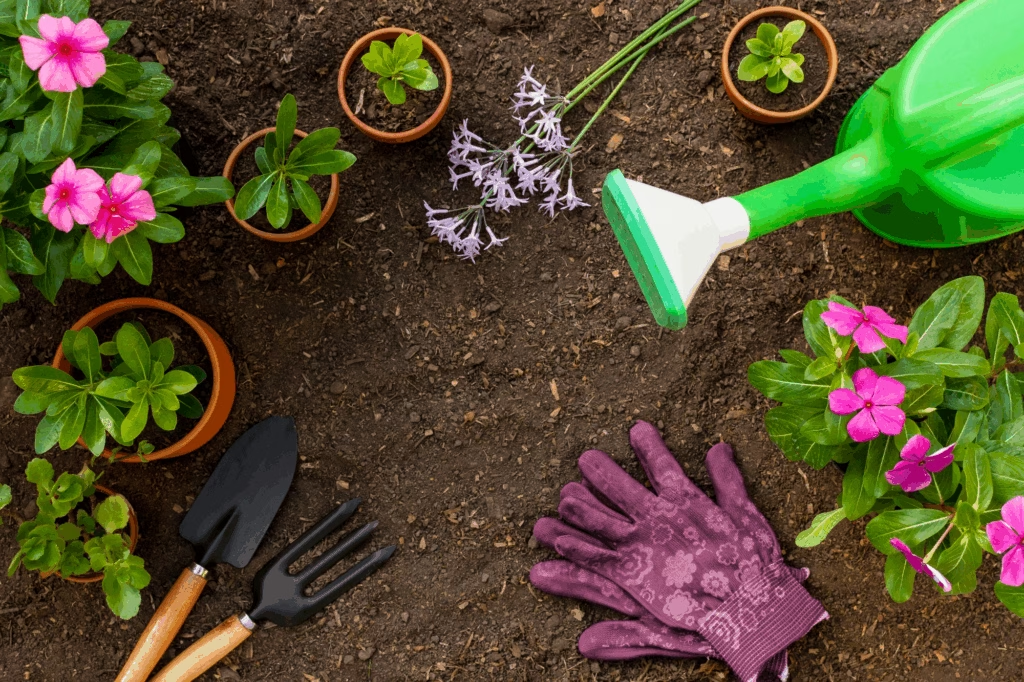Introduction
Organic vegetable gardening is more than just a hobby—it’s a commitment to healthy living, sustainability, and chemical-free food. Whether you are a beginner or an experienced gardener, adopting the right practices ensures not only abundant harvests but also long-term soil health and environmental balance.

According to the FiBL & IFOAM Organic World Report (2024), organic farming and gardening are among the fastest-growing agricultural practices globally. The demand for organic vegetables continues to rise as people prioritize food safety and environmental protection.
In this guide, we’ll share the best gardening tips for organic vegetable growers—backed by expert advice, sustainable practices, and practical insights you can apply right away.
1. Start with Healthy, Organic Soil
Soil is the foundation of every garden, and in organic gardening, its health is your biggest asset.
- Perform a soil test before planting to check pH and nutrient levels.
- Enrich the soil with organic compost, cow dung, or green manure.
- Add earthworms to improve aeration and nutrient cycling.
Read our full guide on organic farming methods for soil enrichment practices.
2. Choose the Right Organic Seeds
High-quality seeds ensure strong, disease-resistant plants. Always buy certified organic seeds that are untreated and non-GMO.
- Vegetables best suited for organic gardens: tomatoes, onions, spinach, carrots, beans, and peppers.
- For reliable harvests, try varieties adapted to your local climate.
Check our guide on onion seeds for planting to start with one of the most versatile organic crops.
3. Practice Crop Rotation
Crop rotation helps balance nutrients and reduce pest build-up. For example:
- Legumes (peas, beans) fix nitrogen in the soil.
- Leafy greens (lettuce, spinach) follow legumes to benefit from added nitrogen.
- Root crops (carrots, onions) rotate next to avoid soil-borne diseases.
According to the University of California Agriculture and Natural Resources, proper rotation improves yields by up to 25%.
4. Use Organic Fertilizers
Organic growers avoid synthetic fertilizers and instead rely on natural inputs. Options include:
- Vermicompost
- Bone meal and blood meal
- Seaweed extract
- Neem cake fertilizer
These not only feed plants but also improve microbial activity in the soil.
5. Mulch for Moisture and Weed Control
Mulching is one of the best organic practices for vegetable gardening. Use organic mulches like straw, leaves, or coconut husk to:
- Retain soil moisture
- Suppress weeds naturally
- Regulate soil temperature
As mulch decomposes, it adds organic matter back to the soil.
6. Water Wisely
Overwatering is a common mistake. Organic growers recommend:
- Deep watering 2–3 times per week instead of daily light watering.
- Installing drip irrigation for water efficiency.
- Collecting rainwater for a sustainable water source.
A study from Texas A&M University confirms that drip irrigation reduces water use by 30–50% while increasing crop yields.
7. Companion Planting for Pest Control
Instead of chemical pesticides, organic growers use companion planting as a natural solution.
- Basil repels pests from tomatoes.
- Marigolds deter nematodes.
- Garlic and onions help keep aphids away.
This practice creates a self-sustaining ecosystem in your garden.
8. Natural Pest and Disease Management
Organic growers avoid synthetic pesticides. Instead, they rely on:
- Neem oil spray for common pests.
- Garlic-chili spray as a homemade repellent.
- Encouraging beneficial insects like ladybugs and lacewings.
Related: Hydroponic farming also reduces soil-borne pests by using soil-free growing systems.
9. Harvest at the Right Time
Harvesting vegetables at the right stage ensures better taste and nutrition.
- Leafy greens: pick when young and tender.
- Tomatoes: harvest when fully colored but firm.
- Beans: pick regularly to encourage more production.
Frequent harvesting also prevents plants from going to seed too early.
10. Keep Records and Observe
The most successful organic gardeners keep a garden journal. Note planting dates, fertilizer applications, pest outbreaks, and harvest yields. Observation helps you refine methods season after season.
Conclusion
Organic vegetable gardening is a rewarding journey that combines nature’s wisdom with sustainable practices. From building healthy soil and choosing organic seeds to natural pest control and water management, these tips will help you grow fresh, chemical-free vegetables while protecting the environment.
By adopting these organic gardening techniques, you’ll not only enjoy delicious harvests but also contribute to a healthier planet.
Call to Action: Ready to grow your own organic vegetables? Explore expert guides, quality seeds, and sustainable farming tips at Agzora.com today!





